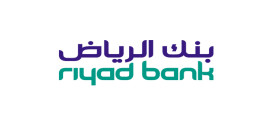
banks to grant
three wishes
PAUL MELLY speaks to a top Saudi finance chief who would like to see banks provide a trio of improvements
This is an interesting time for the Saudi Arabian economy. With oil prices sharply down, the Kingdom must rely on the deeper strengths and diversity it has built up over the past three decades.
It is a country with huge potential for growth and an ambitious agenda to pursue further projects – which should help to sustain business activity and the financial health of local companies during this uncertain period.
Al Jomaih and Shell Lubricating Oil Company (JOSLOC) is a joint venture between leading international oil player Shell and a progressive local group, Al Jomaih Holding. The company, established 30 years ago, helps to keep the wheels of the Saudi economy moving as it blends, markets and sells top-of -the-line Shell lubricants right across the Kingdom.
Such is the scale of this market that the company – which has a state-of-the-art lube oil blending plant – has become one of the leading joint ventures of Shell Lubricants worldwide.
Chief executive officer Waqar Siddiqui closely watches the state of the economy in which the company operates. “The economic and financial context in the Kingdom of Saudi Arabia (KSA) for 2015 could be turbulent – and yet offer numerous interesting opportunities,” he suggests.
“Declining oil prices in an economy heavily dependent upon oil are likely to adversely impact the GDP growth rate for 2015. Additionally, unrest in the region will further worsen the situation, as it is reliant on exports from Saudi Arabia.”
However, there are more reasons to feel encouraged about prospects for the coming months.
“Overall the Middle East region is expected to experience reasonable growth in 2015,” Imran Ahmed, the chief finance officer (CFO) of the company, points out.
“A number of big projects are being launched and progressed to cater to the demands of various sectors. KSA enjoys a great position to be able to exploit and share these growth opportunities, based on its position as one of the most stable countries in the region.”
Moreover, he notes, Saudi Arabia is a country where economic stability and high prospects for growth are the predominant factors shaping the future outlook.
And the Kingdom has, over the past two decades, made huge strides in diversifying away from reliance on the production of crude oil. It is now a major industrial player in sectors such as petrochemicals, banking, telecoms and construction; there has been heavy investment in the diversification and expansion of its GDP into non-oil sectors.
Small business and light manufacturing has become increasingly diverse, and the state has been keenly supporting this broadening of the growth base through various programmes of sustained investment in education and infrastructure – including the current development of a new inter and intra city rail network.
So that is the broad overall context in which major companies such as JOSLOC operate today and that shapes demand for their products and services.
Ahmed outlines the sort of challenges that financial managers face in Saudi Arabia today, as they seek to develop strategies to support their businesses in taking up new opportunities and in coping with the fluctuations in the economic climate and the wider regional uncertainties in the Middle East.
He says that the company, strongly convinced of the prospects for a positive economic outlook, seeks to keep investing in the infrastructure and people to enable itself to fulfill changing market needs by introducing world class innovative products and services.
But he emphasises that in making these comments he is speaking in a strictly personal capacity. He is definitely not setting out an official company view.
“The most important area to be managed at this stage is the business portfolio. With the dynamics created by declining oil prices and unstable conditions in some of the countries in the region, the financial managers have to review the portfolio quickly to ensure that the company has clearly evaluated and discussed risks in the associated products, services and geographies.”
For example, the shift in the oil price has affected what was hitherto a stable exchange rate context, with the Saudi riyal effectively pegged with the US dollar.
“With major payments in the dollar, and the riyal following the dollar, the risk had been quite manageable,” explains Ahmed.

parity has been showing unprecedented fluctuations
But he says, “Post the oil prices reduction, the US dollar to Saudi riyal parity has been showing unprecedented fluctuations. So the company is in talks with a bank about the possible opportunities for US dollar hedging, going forward, provided that it makes sense in terms of the cost benefit.”
In such demanding conditions it is essential to have specialist treasury expertise, he notes.
“At JOSLOC, there is a distinct treasury team within the finance function – ie, treasury reports to the CFO, as other finance functions do.”
He further adds that the management benefits from their partners’ expertise in treasury management, working in the best interests of the company.
The banking environment
The choice of banks and their service offer available to Saudi business has been widening over recent years, but not at a brisk pace. And this has tended to foster a relatively conservative, risk-averse financial services sector, in terms of the range of products offered to corporate clients in the Kingdom.
“In KSA, with a highly regulated banking sector, there have been times when you find the local banks to be comparatively less innovative in introducing new products that are commonly prevalent elsewhere,” says Ahmed.
“Also the risk appetite of local banks is relatively low.” He feels that while the banks operating in Saudi Arabia tend to be of high quality and financially very strong, their attitude to business lending is cautious.
“Banks don’t have high interest to start small in terms of new relationships, as can be witnessed by the fact that the Kingdom has comparatively very low small-and medium-sized enterprise (SME) financing.”
On the technical improvements front, he points out, “At this stage there is minimal interest in treasury services on ‘the Cloud’. There is less awareness of these products and banks don’t seem to be offering these aggressively locally.
“Treasury and management of funds at this stage do not require investment in technology on the part of local enterprises. It requires more attractive offerings from banks to make the market switch from a highly liquid to a more managed funds approach.”
For the moment, in assessing which banks to use, Ahmed can look only at how they deliver the basics, particularly mainstream cash management services.
Indeed, sometimes it is the customer that drives innovation. JOSLOC, for example, has been developing a first of its kind “without recourse” mechanism for financing its distributors.
“This product has been developed by our company with a bank and an insurance company,” notes Ahmed.
But looking forward, he would like to see a more pro-active and aggressive approach adopted by banks to maximise the opportunities available in the local market.
Asked about his expectations of the banks, he is succinct: “A better response rate; a greater ability to come up with innovative products; and increased appetite to take risk.”
 Cash And Trade Magazine For Cash and Trade professionals in the Middle East
Cash And Trade Magazine For Cash and Trade professionals in the Middle East




